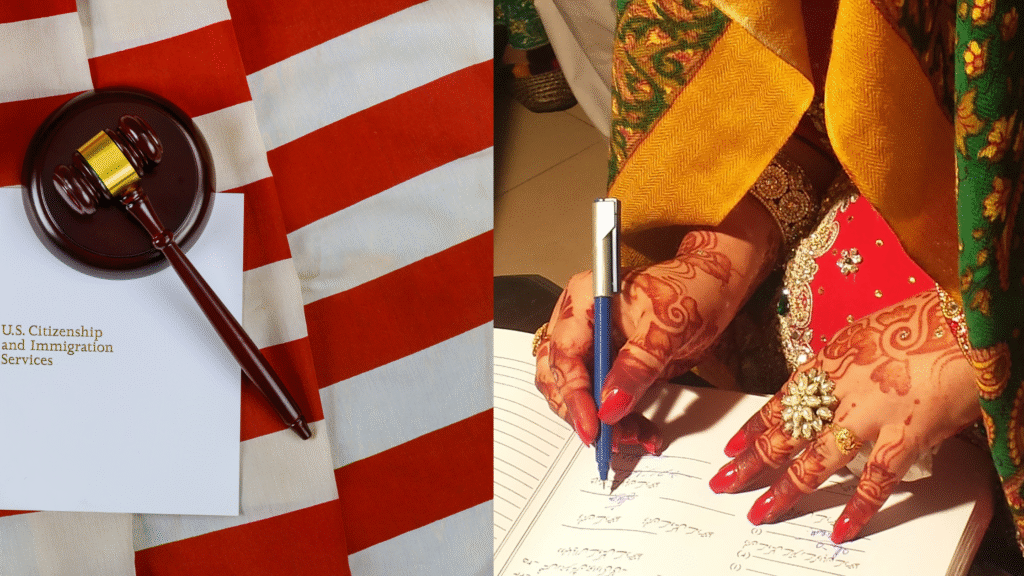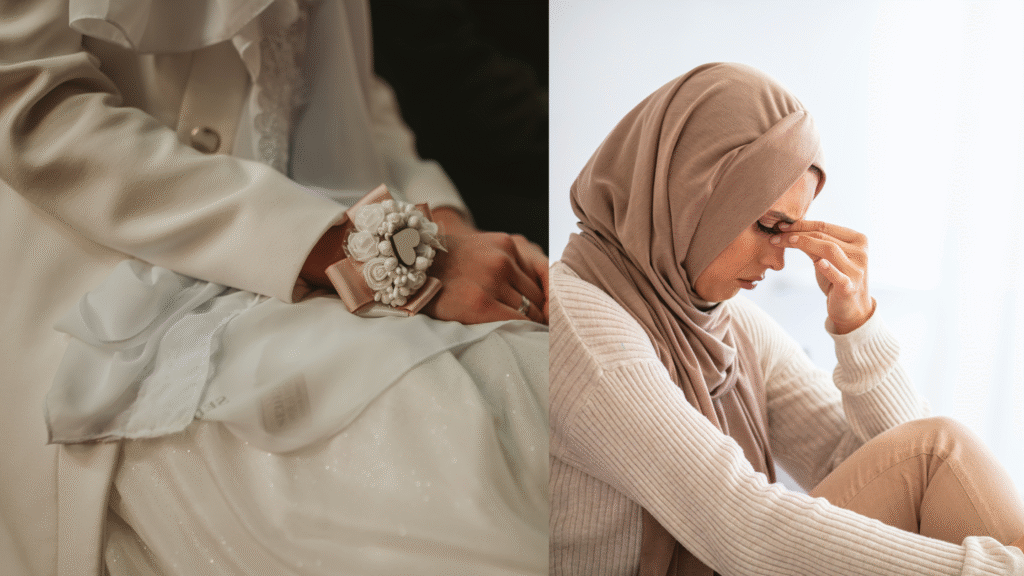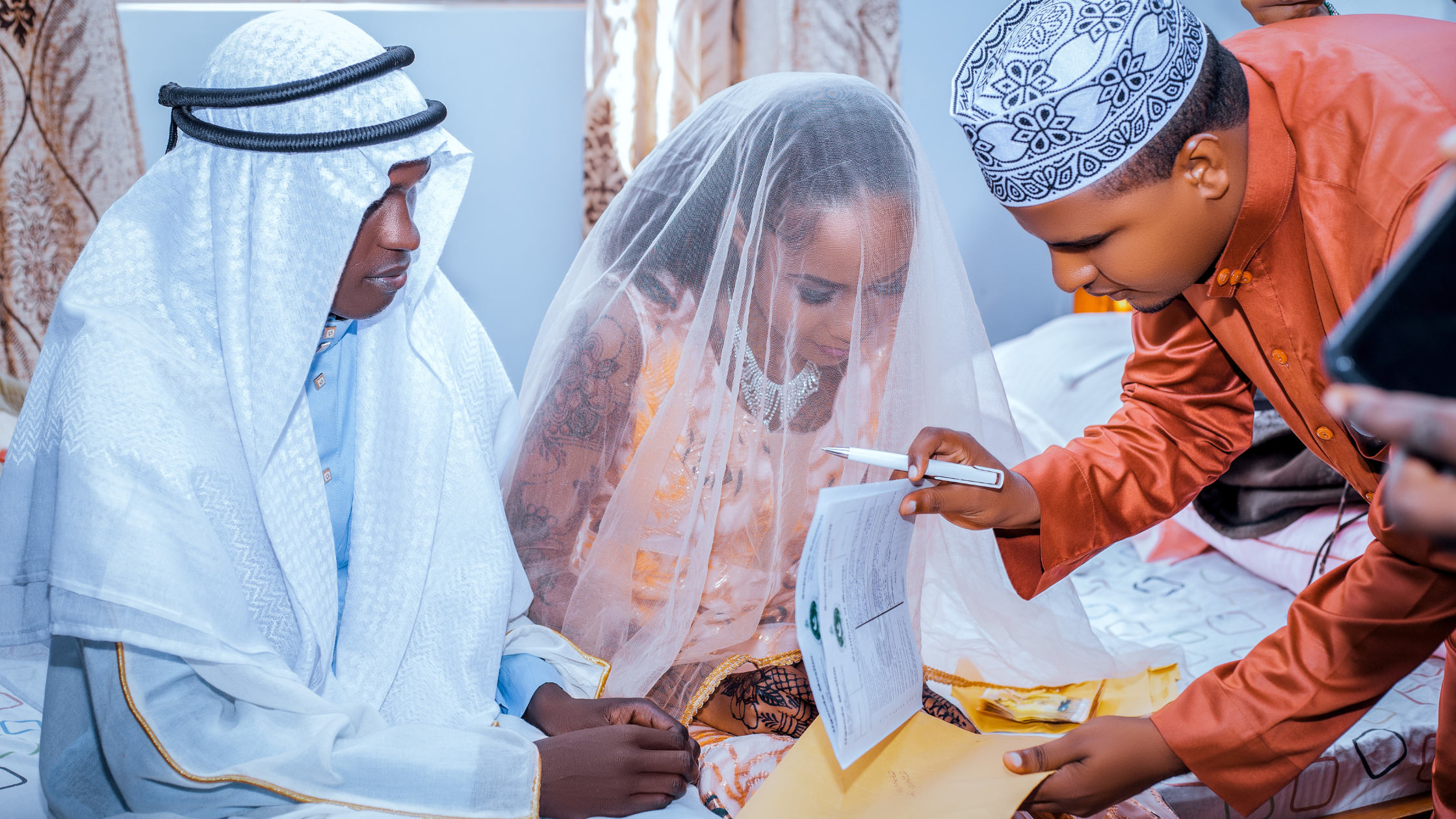Photo Attribution: Kakomo256, CC BY-SA 4.0 https://creativecommons.org/licenses/by-sa/4.0, via Wikimedia Commons
In many Muslim communities, the Nikah, a religious marriage contract, is regarded as a deeply meaningful and binding commitment. While this ceremony carries significant cultural and spiritual weight, it does not, on its own, create a legally recognized marriage under U.S. immigration law. This distinction lies at the heart of many cases involving Nikah and immigration law, particularly for individuals seeking lawful permanent residency or other immigration benefits through marriage.
At Qazi Law, we frequently represent clients whose immigration journeys are impacted by religious marriages that may or may not have been formalized through civil registration. We also see cases where Nikah has been used not as a symbol of partnership, but as a tool of coercion, control, or exploitation. This article explores these issues and outlines the legal remedies that may be available.
The Legal Status of Nikah Under Immigration Law

U.S. immigration law requires that a marriage be legally valid in the state where it was performed to serve as the basis for immigration benefits. While a Nikah may be considered a valid marriage under Islamic law, it does not automatically satisfy state requirements for legal marriage unless it is followed by civil registration with the appropriate authorities.
In the absence of a state-issued marriage certificate, U.S. Citizenship and Immigration Services (USCIS) will not recognize the relationship for a spousal petition or adjustment of status. Applicants must demonstrate that their marriage was both legally recognized and entered into in good faith, rather than solely to obtain immigration benefits.
When Nikah Is Used as a Mechanism of Abuse or Exploitation

While Nikah is intended to represent mutual respect and partnership, we have encountered numerous cases where it has been manipulated to exploit vulnerable spouses, particularly undocumented women or recent immigrants. In such cases, the religious marriage becomes a vehicle for coercion and control.
Common examples include:
- Performing a Nikah without any intention of legalizing the marriage through civil channels, while using the religious bond to exert control.
- Threatening to withhold immigration sponsorship unless the immigrant spouse complies with demands related to domestic labor, sexual activity, or financial contributions.
- Isolating the spouse from social or legal support systems under the pretext of religious or cultural obligation.
- Using immigration status as leverage, with threats such as “I’ll cancel your papers,” or “You will be deported if you leave.”
These patterns of behavior may qualify as abuse under federal immigration definitions, and victims may be eligible for legal relief.
Immigration Relief Through VAWA or T Visas
If the Nikah was followed by civil registration and the abusive spouse is a U.S. citizen or lawful permanent resident, the immigrant spouse may be eligible to self-petition under the Violence Against Women Act (VAWA). VAWA provides immigration protections for individuals who have experienced battery or extreme cruelty, including:
- Verbal, emotional, or physical abuse
- Immigration-related threats
- Financial control and exploitation
- Social isolation
- Sexual coercion or abuse
In cases where the abuse includes coercion into labor or commercial sex acts, or when the immigrant spouse is exploited under the threat of immigration consequences, the individual may also qualify for a T visa, which is reserved for survivors of human trafficking. Importantly, trafficking does not require transportation across borders; it can occur entirely within a marriage when the victim is subject to force, fraud, or coercion.
Marriage Fraud: A Complex and Bidirectional Issue
Marriage fraud is often thought of as a non-citizen deceiving a U.S. citizen to gain immigration benefits. However, we frequently see the inverse: U.S. citizens who mislead non-citizens with promises of immigration sponsorship, only to manipulate or abandon them once control is established.
If USCIS suspects that a marriage was entered into solely for immigration purposes, the consequences are severe. These may include:
- Denial of the immigration petition or green card
- Permanent inadmissibility due to a finding of fraud
- Criminal prosecution of either party
It is important to note that not every failed or short-lived marriage is fraudulent. However, when deceit or exploitation is involved, the legal system allows for corrective measures, both to protect victims and to penalize perpetrators.
Conclusion: Navigating the Intersection of Culture, Faith, and Law

Nikah holds tremendous significance in Muslim communities, but its role in immigration law is limited unless legally formalized through state processes. More importantly, religious marriage should never be used as a tool of coercion or exploitation.
At Qazi Law, we understand both the cultural context of Nikah and the legal frameworks that govern immigration. We are committed to helping individuals understand their rights, navigate their legal options, and seek protection when their dignity or safety has been compromised.
If you are in a Nikah, whether civilly registered or not, and are facing immigration difficulties, abuse, or threats, we encourage you to contact our office for a confidential consultation. Your safety and legal status matter, and there are pathways forward that protect both.
📞 Call us today at 630-504-0648 or schedule a confidential consultation with Attorney Farrah.
Sign Up for Our Newsletter: Receive weekly immigration news and free toolkits.
Follow us on social media to stay informed:
Facebook: Qazi Law Offices
Instagram: Abogada Farrah Qazi
LinkedIn: Qazi Law Offices

